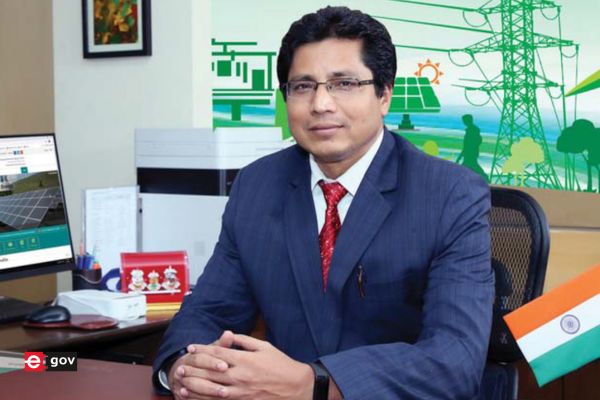
The Indian public sector has witnessed rampant changes over the last two decades, owing to Digital India program, implementation of GST, demonetisation, and the 2018 Union Budget’s focus on emerging technologies. With India’s steady push toward complete digitisation, understanding the challenges that government CIOs face and underlining issues preventing IT innovation is enormously important when establishing a digital transformation strategy, writes Ravindra Kelkar – Senior Director, Enterprise & Public Sector, Citrix India.
Over the past two decades, we have seen dramatic changes in the public sector in India. Impetus to the Digital India program, implementation of GST, demonetisation, and the 2018 Union Budget’s focus on emerging technologies, have majorly contributed to India’s steady move toward complete digitisation. These developments have in turn also induced organisations across the country to embrace technological solutions like mobile working, cloud and analytics to be ingrained in everyday processes. Therefore, it is safe to say that, today, India is setting an example for digital transformation to modernise public services.
While some of this transformation is happening now, and the opportunity for streamlined services tailored to the needs of the community are higher than ever, yet they come with complex challenges. The rapid rate of digital transformation, and the associated IT innovation, has resulted in sprawling IT environments. The sheer volume of applications used in today’s workplace combined with the demands for business agility and compliance, is creating enormous challenges for government CIOs to fully drive its organisations’ digital transformation journey.

Understanding the challenges that government CIOs are faced with and underlining issues preventing IT innovation is enormously important when establishing a digital transformation strategy. Below are five of the top challenges facing public sector IT teams in the region:
Complexity

Today more than ever, IT professionals are forced to operate in a complex IT environment. Factors such as the proliferation of devices and explosion of data, combined with changing work styles and requirements from employees on how, where and when they work are making it harder for organisations to effectively manage its IT environment. For government agencies in particular, complexity can be costly. Not only does it add cost to manage the growing number of cloud applications, it also slows down productivity, making it difficult for any government agency to deliver its services. Hybrid or multi-cloud solutions may offer benefits to organisations as a crucial part of their digital transformation journey, yet complexities around the reality of going to cloud, present a stumbling block for CIOs.
The old and the new
Transitioning from legacy systems requires not only significant resources but also strict procedures and multilevel approval processes that often add another layer of complexity. On top of that, there is also the challenge of integrating the old and the new in a secure environment, modernising the legacy systems to fit today’s working landscape. In many cases, legacy applications are still running critical functions for organisations, and digital transformation initiatives must be structured to allow those applications, processes and systems to work seamlessly in the new IT environment, to avoid service delays or interruptions for staff and the public.
Data security
Every government agency deals with sensitive citizens’ data. From health records to biometric data, the security of personal data is of paramount importance. Data security and privacy has never been more important. Any digital transformation strategy needs to respect, secure and offer the transparence into the data required in today’s highly regulated environment. New privacy policies and laws require that an organisation report what data they hold about an individual, when requested. In order to comply with these regulations, organisations need both extremely strong data security, but also tools that can analyse and provide transparency into the data held.
Flexible mobile working
Today flexibility and mobile working should be a critical component of all work scenarios. Freedom from the desk can lead to improved productivity, employees in the public-sector field – be it social workers, police deputies, public works engineers and other government officials who typically work away from the office, meeting with members of the public as part of their daily work lives, if work, such as updating records and reporting is restricted to the desk back at the office – time is lost and potential productivity bonus of updating records and reports on the go is lost. Keeping workers mobile, secure and productive is critical to unlocking productivity.
Citizen-centric
In a truly digital world, the customer comes first. Solutions and services are tailored to meet the customers’ needs and expectations. The same approach can also be applied to government services when it comes to addressing the need of its citizens. This includes being able to accommodate every preferred method of interaction with its citizens whether its social media, bespoke applications, in-person meetings or forums, website communications, emails or letters sent via a postal service. The rapid pace of technology innovation, as demonstrated by the arrival of video streaming, telecare and others, poses a challenge for government agencies to meet the diverse need of its citizens.
Having understood these challenges, government agencies can benefit by partnering with OEMs consulting and Security and Intelligence (SI) firms that have a strong background and success rate in the public sector. Partners can bring objectivity, insights and big picture thinking that pull together what is really needed without being drown in the day-to-day workload including the pain-points. They can move the thinking from ‘what if it goes wrong?’ to simply ‘what if?’ (Views expressed by author are his own)
Be a part of Elets Collaborative Initiatives. Join Us for Upcoming Events and explore business opportunities. Like us on Facebook , connect with us on LinkedIn and follow us on Twitter, Instagram.











